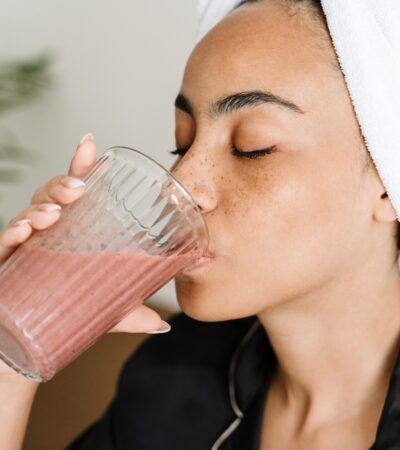We all know that we should probably be drinking more water. It’s a classic health hack… up there with eating more green leafy vegetables and shunning sugar. In fact, comparable to “five a day”, ‘2 litres a day’ has become something of a health mantra- a tangible goal to which we can strive for. With a large bottle or jug sat proudly on our desk (when we remember), we feel smug if we consume the recommended amount and berate ourselves if we don’t. But do we fully understand why water is so important, and what the wide-ranging impacts are on our body if we don’t get enough? And can there really be a ‘one-size-fits-all’ approach to the amount of water we (as very different shape and sized individuals) drink a day?
A recent study showed that a staggering 89% of the UK population is not drinking enough water to maintain healthy hydration levels. In fact, 13% of women, and 20% of men admitted that they drink no water at all. Some of the most apparent and well-recognised signals of dehydration you may be familiar with include thirst, dry mouth, mild headaches and dark, smelly wee. However, the importance of drinking water reaches far beyond simply avoiding these signs, affecting every system in the body. Here are just some of the reasons to partake in a bit of water guzzling….
Increased Energy & Improved Mood
Our brains are actually composed of a massive 85% water, and studies have shown that even mild dehydration can have a significant impact on mood, energy levels and mental performance. Researchers at the University of Connecticut found that mild dehydration in study participants led to alterations in mood, headaches, fatigue and difficulty concentrating. These findings were found to be more pronounced in women than in men (ladies take note!) and occurred both at rest and during exercise.
Better Exercise Performance
Not drinking enough water can have a detrimental effect on your ability to workout. Under relatively mild levels of dehydration, participants of rigorous physical activity were shown to display reduced endurance, increased fatigue and reduced motivation. Sore muscles, cramping, and longer recovery times can also occur as a result of not drinking enough water before and throughout exercising. To stay top of your game, make sure you start exercising well hydrated and don’t just wait until you are gasping afterwards.
Maintaining Regularity
Water is essential for keeping things flowing through the digestive system. When we don’t drink enough water, the body will compensate by pulling water from stools to maintain hydration, causing hard stools that are difficult to pass and constipation, which is extremely uncomfortable. Water is also needed to produce the digestive juices that break down our food, and if we’re not producing enough we may start to experience symptoms such as bloating, gas, and nausea.
To Help Weight Loss
Drinking plenty of water can help support weight loss. Not only does water increase satiety (how full up you feel), but it can also boost your metabolic rate, which determines how you burn fat. Confusing the symptoms of thirst for hunger is a commonly made mistake, leading us to eat rather than rehydrate.
A Glowing Complexion
Have you ever noticed those girls walking around with flawless, glowing skin usually have a bottle of water tucked under their arm?! Drinking enough water is important to maintain a healthy level of moisture within the skin cells. If your skin is not getting enough, it can become dry, tight and show early signs of ageing. Water is also important for ridding the body of toxins, a build-up of which can cause congestion in the skin.
So how do you know if you’re drinking enough? Well no fancy tests required, the colour of your wee is actually the best indicator of your hydration levels. It should be pale, almost straw-coloured, and any darker is a sign that you are dehydrated. To rehydrate properly, don’t be tempted just to knock back a large pint of water and then forget about it. Instead, sip your 2 litres regularly over the course of the day. Bottoms up and happy hydrating!
Read more: Mind & Body Benefits Of Drinking More Water














